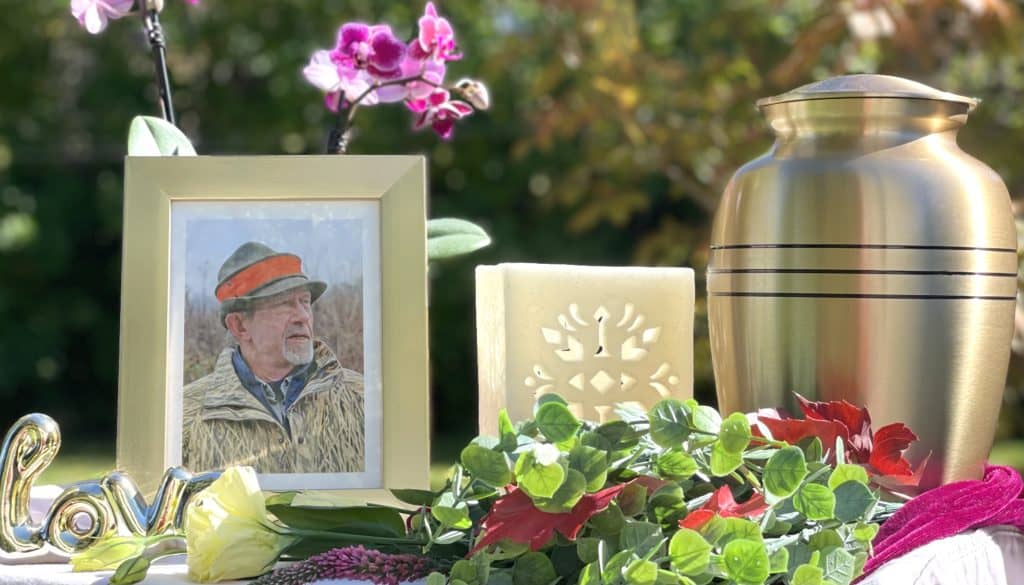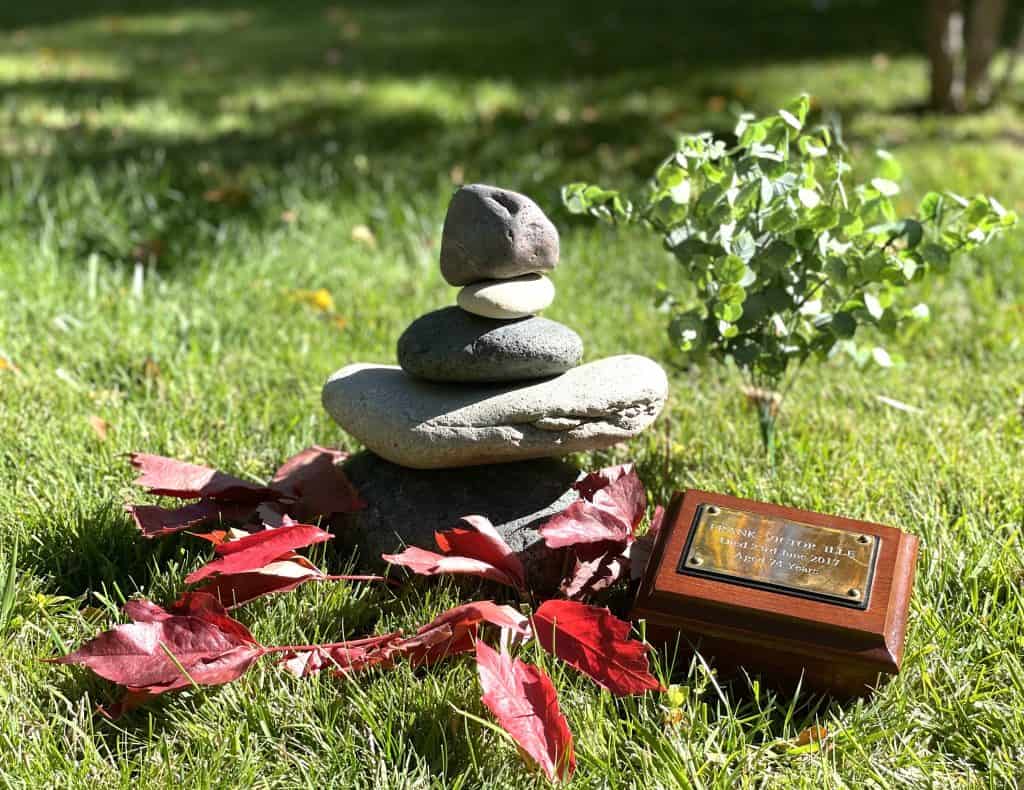Your Guide to Doing It Your Way!
The death of a loved one is one of life’s most difficult moments, and the way we cope with such loss often involves gathering with others to honor and remember the person we’ve lost. Memorial services provide an opportunity for family and friends to come together, reflect on the life of the deceased, and find support in one another.
While there are many ways to memorialize someone, the act of coming together for a service can be deeply meaningful and often serves as a vital part of the grieving and healing process. In today’s digital world, gathering together can even be a virtual event.
How has Direct Cremation altered how we choose to Memorialize?

Direct cremation has become our Nation’s preferred cremation choice, where we opt for simplicity and affordability to facilitate the end of a loved one’s life. This simple cremation option can be conducted for around $1,000 in most states and even arranged online without the need for uncomfortable, somber visits to a funeral establishment.
Indeed, many direct cremation service providers offer secure online arrangement platforms where you can complete everything from the comfort of your armchair within 15-20 minutes!
This evolution in death care means we, as individuals and families, can regain control over the memorialization aspect of death care. It is now a revolution where families demand low-cost, no-ceremony cremation options, with an intention to consider how best they wish to personalize a memorial service for their loved one.
This can be managed entirely by a family’s time schedule and preferences, not dictated by a funeral service provider.
Why Do We Hold a Memorial Service After a Loss?
A memorial service is more than just a gathering; it is a time to acknowledge the death, celebrate the life lived, and offer comfort to those left behind. It is often said that “funerals are for the living”, a memorial service can be an acknowledgement of a loved one, and a time to reflect.
Here are some key reasons why memorial services are important:
We need to Acknowledge the Loss & Say Goodbye

A memorial service allows family and friends to acknowledge that a loved one has passed. It is a formal way of recognizing the transition, which helps mourners begin the process of accepting the reality of the loss.
Some Lives Need Celebrating: Allowing time after a passing and cremation can help the focus shift to celebration.
Memorial services are an opportunity to celebrate the deceased’s life, focusing on their achievements, memories, and the impact they had on the people around them. It helps shift the focus from sorrow to gratitude for the time shared.
Gathering for a Memorial Service can Offer Support to a Grieving Family.
Grief is often easier to bear when it is shared. Coming together as a community provides a support network for those mourning. The act of gathering reminds people that they are not alone in their grief and creates a space for shared emotions and experiences.
Holding a Memorial Service can Provide some form of Closure for a Family
While the grief process is long and personal, a memorial service often serves as a form of closure. It marks the beginning of the journey to healing and moving forward, providing a structured way to say goodbye.
A Memorial Service can Fulfill a Religious Practice or Cultural Ritual
Many memorial services are rooted in cultural or religious traditions. These rituals provide a sense of connection to something larger than ourselves, offering solace in the structure of age-old practices that honor the dead.
Appreciating the Significance of Rituals in Memorial Services

Rituals play a critical role in memorial services because they give form to grief and provide a sense of purpose in the process. Whether they are traditional religious rites or more personal, symbolic acts, rituals offer a structured way to express emotions and commemorate the life of the deceased.
1. Enable Emotional Expression: Rituals create a safe space for emotional expression. They can include shared prayers, lighting candles, releasing balloons, or reciting poems—all of which give mourners a tangible way to express their feelings of loss.
2. Facilitate a Connection to Tradition: Many rituals are rooted in cultural or religious traditions, providing comfort and continuity in times of upheaval. These rituals connect the living with their heritage and remind us that we are part of a larger cycle of life and death.
3. Creating Meaning & Personalization: Through rituals, we imbue the service with deeper meaning. Acts such as scattering ashes in a meaningful location, playing a favorite song, or sharing stories of the deceased create a personalized and profound tribute.
4. A Memorial Service Can Provide Structure: In a time of emotional chaos, rituals offer a structured way to process grief. The steps of a ceremony—such as speeches, prayers, or symbolic acts—provide a framework that helps people navigate their emotions and find solace in the process.
How a Family Can Conduct Their Own Memorial Service

Families need not rely on professionals to organize a meaningful memorial service. With some planning and personal touches, a family can create a deeply significant and heartfelt tribute to their loved one. Here’s how:
1. Choose a Location for a Service that is Special to the family or the deceased
Decide on a meaningful location for the service. This could be at a family home, a favorite park, a beach, or any place that held significance for the deceased. If preferred, families can also host the service in a place of worship or a rented venue.
2. Decide on a Date that Suits the Immediate Family
It’s important to choose a date that allows enough time for planning and for guests to make arrangements to attend. Memorial services often take place a few days to several weeks after the death.
3. Plan an Overview or Schedule of the Memorial Service Event
Create an outline of how the service will proceed. Typically, this includes:
Opening Words: Someone (a family member or close friend) can offer welcoming remarks and introduce the purpose of the gathering.
Readings or Prayers: Incorporate poems, religious readings, or favorite quotes that reflect the personality or beliefs of the deceased.
Sharing Memories of the deceased: Encourage guests to share stories, memories, or anecdotes. This is often the most meaningful part of the service, as it celebrates the life lived through personal experiences.
Make a Music Playlist: Play music that was special to the deceased, whether it’s a favorite song, a hymn, or instrumental music.
Closing Remarks of Comfort & Thanks: Conclude with final words or reflections, offering support and encouragement to those gathered.
4. Consider any Symbolic Acts You Would Feel Appropriate to Pay Tribute to the Deceased
Choose meaningful rituals to include in the service, such as lighting candles in remembrance, releasing balloons, planting a tree, or creating a memory book that guests can sign and write messages in.
5. Invite and Encourage Participation in the Memorial Tribute
Memorial services are most powerful when attendees feel they are part of the process. Invite loved ones to participate in the readings, share memories, or help with the planning and setup.
6. Consider Holding a Reception or Gathering after the Memorial Service
Consider having a gathering after the formal service where guests can share a meal or spend time together informally. This can take place at someone’s home or at a restaurant and allows for more personal conversations and connections.

Final Thoughts about the Importance of Holding a Memorial Service or Celebration of Life
Holding a memorial service is a way to honor a loved one, celebrate their life, and find comfort in shared grief. Rituals can provide a sense of meaning and structure, helping people express their emotions and find peace.
By planning a memorial service themselves, families can create a personal and significant tribute that reflects the unique life of the person they loved at a fraction of the cost that a funeral home would have charged.
Check out our Guide to How to Create Your Own Professional Memorial Tributes for ideas for speeches, music, wreaths, memory boards, and much more.
A gathering for a Memorial Service can be held anywhere, even outdoors, and some families choose to hold a service to perform a symbolic scattering of ashes.
If you are considering an ash scattering ceremony, please read our Complete Guide to Safely Scattering Cremated Remains. This guide has tips for scattering and loads of great ideas for scattering ceremony rituals and locations.


